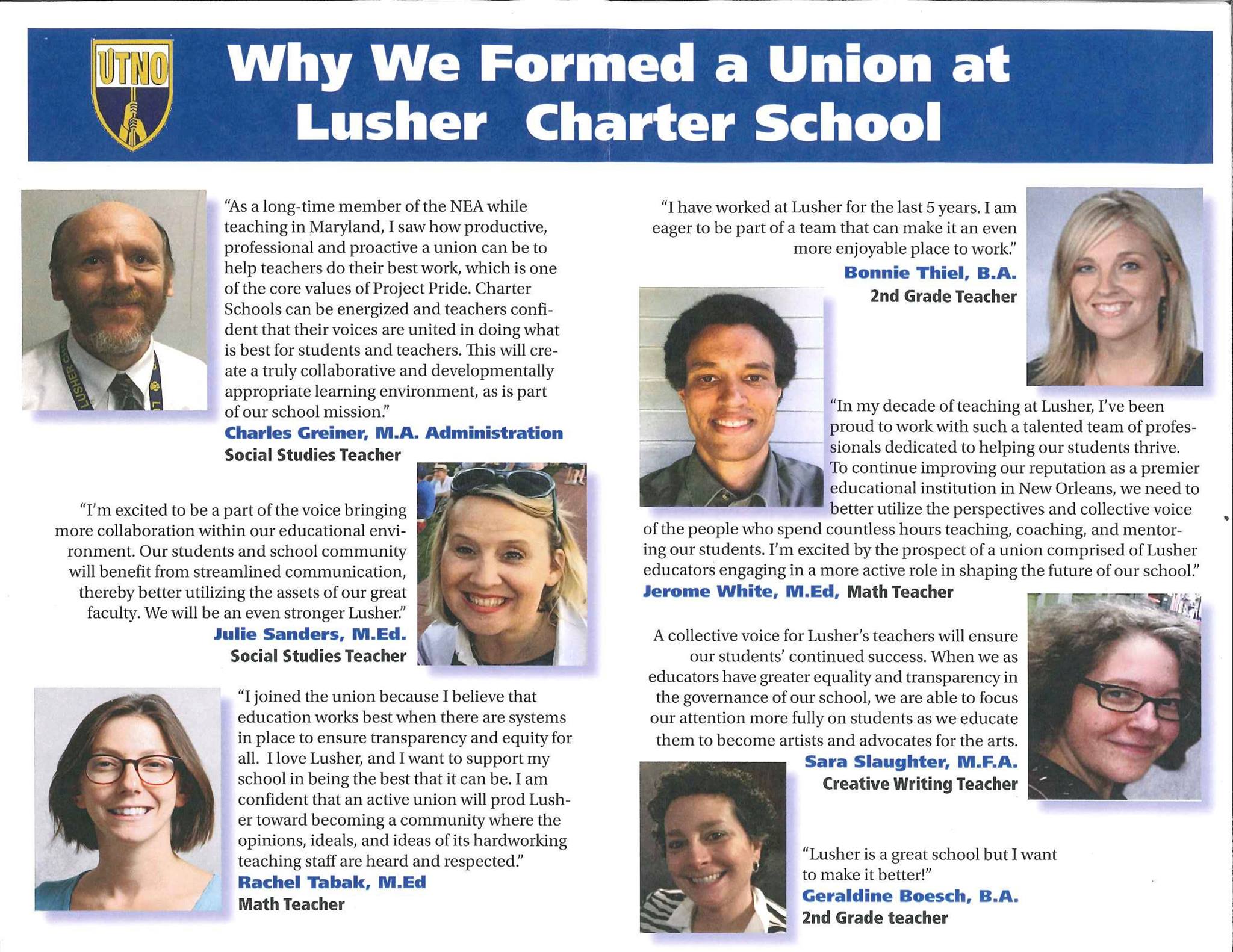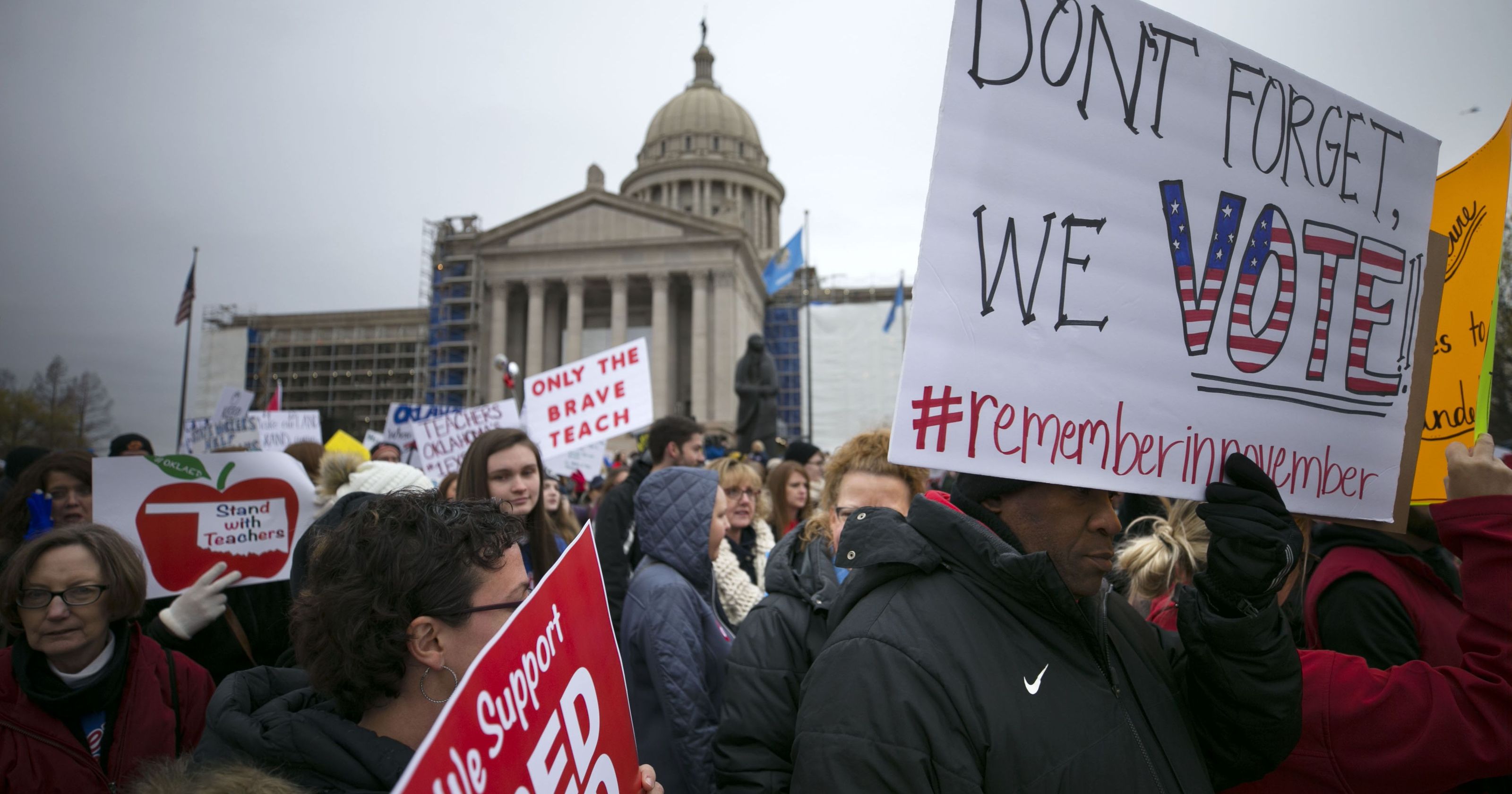The United Teachers of New Orleans (UTNO) was once the largest union local in Louisiana and a powerful force in local politics. That changed thirteen years ago, when Hurricane Katrina flooded New Orleans, killed nearly 1,000 residents, and displaced hundreds of thousands more.
In the immediate aftermath of the storm, the city’s perennially-failing public school system was in complete disarray. After decades of corruption and mismanagement, the Orleans Parish School Board (OPSB) was essentially bankrupt and board members were unable to set aside their differences to effectively respond to the crisis. The state soon moved to takeover nearly all of the city’s public schools and put them under the oversight of the Recovery School District (RSD). As a result, the school board had little choice but to layoff nearly 7,600 of its employees in September 2005.
Within months, UTNO’s membership had plummeted more than 90 percent, from approximately 4,700 members before Katrina to only 300 in the spring of 2006. It was a blow from which the union has never recovered.

As the city embarked on a radical transformation of the school system, there was little interest among educators in reviving UTNO, an organization which many viewed as part of the problem before the storm. Lacking support, UTNO largely faded from public view, while relying on its parent union, the American Federation of Teachers (AFT), to subsidize its operations.
However, over the past five years, UTNO’s fortunes have gotten a shot in the arm, as AFT has taken an aggressive stance against charter schools and has sought to discredit and undermine the success of New Orleans’ charter-driven school reforms,
According to its annual reports to the U.S. Department of Labor, AFT steered more than $2.3 million to UTNO between F.Y. 2012 and F.Y. 2017 to underwrite organizing efforts in New Orleans charter schools. Yet in spite of this infusion of cash, the results of these efforts have been mixed.
Since 2015, UTNO has launched organizing drives at five local charters, but only two of those schools – Ben Franklin High School and Morris Jeff Community School – have voluntarily recognized the union. Meanwhile, a contentious push to organize Lusher Charter School was ultimately voted down by teachers, while UTNO’s attempts to organize International High School and Mary D. Coghill have stalled due to legal challenges.

Where do things stand with UTNO today?
To get some idea about UTNO’s current strength, I recently took a look at campaign finance reports from UTNO’s Committee on Political Education (COPE), which is a fancy name for its political action committee. Most AFT affiliates, like UTNO, have associated COPE PACs, which are funded through voluntary contributions made by members. As opposed to super PACs, which can engage in unlimited independent spending, COPEs can only make direct contributions to candidates of up to $2,500.
UTNO COPE’s 2017 annual Committee Report, which the union submitted to the Louisiana Board of Ethics in February of this year, is of particular interest. First of all, it reveals that UTNO has been rather sloppy when it comes to managing its members’ COPE contributions. According to a note included in the report, the union accidentally deposited over $740 of COPE funds in the wrong bank account and didn’t realize the mistake until a year later.
The filing also reveals that UTNO can’t seem to follow basic reporting guidelines, which require PACs to identify the names of each contributor, the amount of their contribution, and the date on which those contributions were made. Instead, the union attached what appears to be a membership list to the report, which nevertheless still doesn’t indicate who contributed to UTNO COPE, nor how much they contributed.
The list itself, which I’ve reproduced below, contains the names of 592 members, many of whom are retired. Even if incomplete, the list corroborates indirect estimates of UTNO’s membership gleaned from its tax filings with the IRS, which indicate the union could have no more than 650 members.
wpDataTable with provided ID not found!In sum, while UTNO’s membership has rebounded somewhat since its low point immediately after Katrina, the union is still a shadow of its former self. Although AFT has poured money into organizing charter schools in the city, they clearly haven’t gotten a return on their investment. For those of us who want to see the school system move forward and build upon its successes over the past thirteen years, that isn’t necessarily a bad thing.

